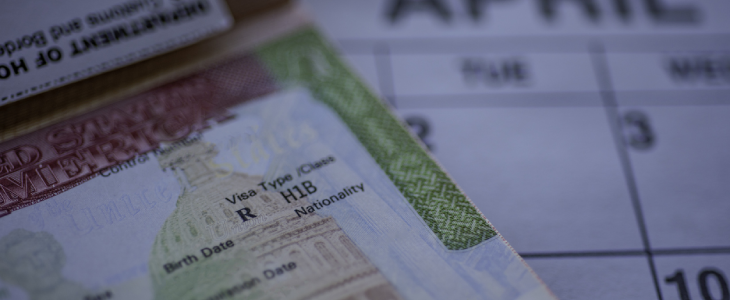The U.S. offers several types of work visas. For instance, the H-1B visa allows skilled workers to work for a U.S. employer in a specialty occupation. The L-1 visa lets multinational companies transfer employees to a U.S. office. The O-1 visa applies to people with exceptional abilities in sciences, arts, education, business, or athletics. The TN visa allows Canadian and Mexican professionals to work in the U.S. under NAFTA. For permanent positions, EB-2 and EB-3 Green Cards allow for employment-based residency. The H-2B visa and certain other visas allow temporary work in non-agricultural jobs. Each visa type has different qualifications, petition requirements, and processing times.
Eligibility Requirements for U.S. Work Visas
Each U.S. work visa has different requirements. Most work visas require a U.S. employer to submit a petition before the applicant can apply. Here are some examples of the eligibility requirements for different work visas:
- The H-1B visa requires a job in a specialized field and a bachelor’s degree or higher.
- The L-1 visa requires at least one year of work with a related company outside the U.S.
- The O-1 visa requires proof of significant achievements in a specific field.
- Some visas, like the H-2B, require labor certification to confirm that hiring a foreign worker will not negatively affect U.S. workers.
Applicants must also meet security and health standards. Failing to meet the specific qualifications for a visa can result in delays or denials.
The Work Visa Application Process
Applying for a U.S. work visa involves several steps. In most cases, the process starts with a U.S. employer filing a petition with U.S. Citizenship and Immigration Services (USCIS). If USCIS approves the petition, the worker can apply for a visa at a U.S. embassy or consulate in their home country. The application process includes filling out Form DS-160, paying fees, and submitting required documents. Most applicants must also attend interviews with consular officers, who review cases and ask questions about applicants’ jobs and backgrounds. If the officer approves the application, the applicant receives a visa stamp in their passport, after which they can enter the U.S. and begin employment under the approved terms.
Required Documentation for Work Visa Applications
Each visa application requires specific documents. The employer must submit a petition, usually using a Form I-129, to USCIS. Workers must also provide valid passports, completed DS-160 forms, and job offer letters. Some visas require proof of education, such as diplomas or transcripts. For the H-1B visa, applicants must submit a Labor Condition Application (LCA) approved by the Department of Labor (DOL). The L-1 visa requires proof of employment history with a foreign company. The O-1 visa requires evidence of achievements in the applicant’s field. Consular officers may request additional documents, such as financial records or letters of recommendation, to verify an applicant’s eligibility.
Common Challenges and How to Address Them
It’s common to face obstacles when applying for a U.S. work visa. The H-1B visa has an annual cap, so many applicants do not receive approval. Workers whose visa applications are denied can consider alternative visas or employer-sponsored Green Cards. Requests for Evidence (RFEs) are common if USCIS requires more proof of eligibility. Responding quickly to RFEs with clear documentation can resolve these issues. Visa denials can also happen if applicants provide incomplete information or fail to meet requirements. In some cases, reapplying with stronger supporting documents can increase the chances of approval. Finally, processing delays can affect work start dates, so employers and workers should apply for visas as early as possible. An experienced immigration attorney can help applicants prepare strong applications and avoid common mistakes and delays.
Contact a Garden City Immigration Lawyer Today
If you need help applying for a U.S. work visa, Yaqubie Law can review your case, help you understand your options, and prepare a strong application on your behalf. Contact us today for your initial consultation to get clear answers and take the next step toward working in the U.S.
Yaqubie Law, located in Garden City, also serves Manhattan, Brooklyn, Bronx, Queens, Staten Island, Syosset, Nassau County, Suffolk County, Long Island, and the greater New York area.



